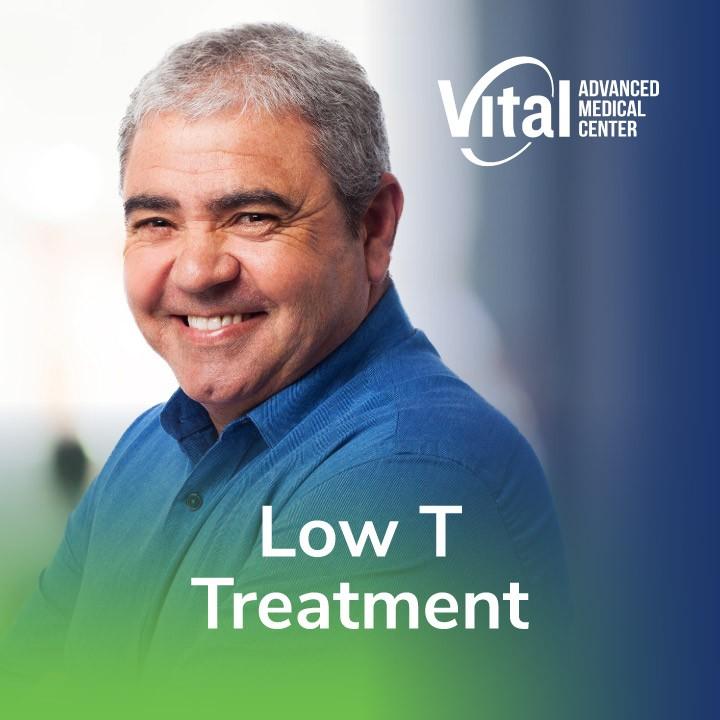

AN OVERVIEW OF HYPOGONADISM IN MEN
HYPOGONADISM
Hypogonadism in men is a condition where the body doesn't produce enough testosterone, the hormone responsible for the development and maintenance of male reproductive tissues, muscle mass, bone density, and various other physical and emotional functions. This can result from problems in the testes (primary hypogonadism) or issues with the hypothalamus or pituitary gland (secondary hypogonadism), which regulate testosterone production. There are different types of Hypogonadism.
PRIMARY HYPOGONADISM
This type occurs when the testes themselves are not functioning properly. Reasons for this are Genetic conditions (e.g., Klinefelter syndrome, a condition where men have an extra X chromosome).
Other reasons are an injury to the testes (trauma, surgery, radiation), chronic conditions (e.g., diabetes, kidney failure), infections (e.g., mumps, sexually transmitted infections), age-related decline in testosterone (testosterone levels naturally decline with age, but this doesn't always indicate hypogonadism).

SECONDARY HYPOGONADISM
This occurs when the hypothalamus or pituitary gland (areas of the brain that regulate hormone production) aren't signaling the testes to produce testosterone. There are several causes of this such as Pituitary tumors (benign or cancerous), Head injuries or surgeries affecting the brain, chronic illnesses (e.g., obesity, HIV/AIDS), medications (e.g., opiates, steroids), genetic conditions (e.g., Kallmann syndrome, a condition involving an abnormal sense of smell and delayed or absent puberty) or age-related (like primary hypogonadism, testosterone levels decline with age).

SYMPTOMS OF HYPOGONADIS M
SYMPTOMS OF HYPOGONADISM
The symptoms can vary widely and are often gradual in onset. They can be both physical and psychological and may include physical symptoms such as Reduced libido (sex drive). This is one of the most common symptoms, often reported as a noticeable decline in sexual desire. Another is Erectile dysfunction which is difficulty achieving or maintaining an erection.
Fatigue such as extreme tiredness or a noticeable decrease in energy levels, even with adequate rest.
SYMPTOMS OF HYPOGONADISM
A Loss of muscle mass is also another symptom of hypogonadism.
Testosterone is vital for maintaining muscle, so hypogonadism may lead to reduced strength and muscle size. Another symptom is an increase in body fat, especially abdominal fat, due to the imbalance between muscle mass and fat accumulation.
Decreased bone density can lead to osteoporosis or an increased risk of fractures.
Decreased body and facial hair, which is linked to reduced testosterone. Hot flashes, similar to what women experience during menopause, though more uncommon in men.

PSYCHOLOGICA L SYMPTOMS OF HYPOGONADIS
PSYCHOLOGICAL SYMPTOMS OF HYPOGONADISM
There are several symptoms of Hypogonadism. One of the major symptoms is Depression. Men with hypogonadism may experience feelings of sadness, irritability, or depression. They may also experience a lack of interest in activities that were previously enjoyable or important, difficulty concentrating or "brain fog" or cognitive impairments, including trouble with focus or memory and reduced overall well-being a general sense of not feeling like oneself.

DIAGNOSIS OF HYPOGONADIS M
DIAGNOSIS OF HYPOGONADISM
The diagnosis of hypogonadism involves a combination of clinical assessment and laboratory tests. There must be a medical history intake and Physical Exam. The doctor will assess symptoms, lifestyle, and perform a physical examination to identify potential signs of hypogonadism.
Blood Tests to check general health and testosterone Levels. Low total testosterone levels (usually below 300 ng/dL) are indicative of hypogonadism. This test is typically repeated in the morning, as testosterone levels fluctuate throughout the day, check free Testosterone (this is the testosterone that is not bound to proteins in the blood and is active in the body)
DIAGNOSIS OF HYPOGONADISM
Blood tests also check Luteinizing Hormone (LH) and Follicle-Stimulating Hormone (FSH). Elevated levels of LH and FSH can indicate primary hypogonadism (testicular failure), while low levels suggest secondary hypogonadism (hypothalamic/pituitary dysfunction).
Blood tests also check the levels of Prolactin. High levels of this can indicate pituitary issues, which may contribute to secondary hypogonadism.
At our TRT Clinic Tampa, our certified providers work with male patients to evaluate their blood tests and see if Hypogonadism is present.
DIAGNOSIS OF HYPOGONADISM
Imaging Studies
MRI or CT scans are used to evaluate the pituitary gland or brain for potential tumors or abnormalities that might affect testosterone production.
Depending on the cause, additional blood work or genetic testing may be needed to diagnose underlying conditions (e.g., Klinefelter syndrome, Kallmann syndrome).

TREATMENT OPTIONS FOR HYPOGONADIS
TREATMENT OPTIONS FOR HYPOGONADISM
Treatment for hypogonadism generally aims to restore normal testosterone levels and manage symptoms. The type of treatment depends on the underlying cause and the patient's specific needs.
The goal is to raise testosterone levels to a normal range by TRT. At our TRT Clinic Tampa , once a man is diagnosed with hypogonadism, we work with him to determine whether TRT is right for him.
Methods of administration are intramuscular testosterone injections (e.g., testosterone cypionate or enanthate) are commonly used, topical gels or creams: Applied directly to the skin for absorption, testosterone patches worn on the skin for consistent absorption, Pellets implanted under the skin and slowly release testosterone over time. There are also Oral Medications, which are less common due to potential liver toxicity issues.

BENEFITS OF TRT
Improved sexual function and libido.
Increased energy and reduced fatigue.
Enhanced mood and cognitive function.
Increased muscle mass and reduced body fat.
Improved bone density and overall well-being.

TREATMENT OF UNDERLYING CONDITIONS
If secondary hypogonadism is due to pituitary tumors, head injuries, or genetic conditions, treating those underlying issues can sometimes resolve or improve testosterone production.

LIFESTYLE MODIFICATIONS NS FOR HYPOGONADISM
LIFESTYLE MODIFICATIONS
Exercise. Regular physical activity, especially strength training, can help boost natural testosterone levels.
Diet. A balanced diet rich in healthy fats, protein, and micronutrients is important for maintaining overall hormone health.
Stress Management. Chronic stress and high cortisol levels can negatively impact testosterone production.
Adequate Sleep. Poor sleep hygiene can lead to low testosterone levels.
LONG TERM MANAGEMENT
Regular follow-up visits with a healthcare provider are essential for monitoring testosterone levels, blood counts (to check for polycythemia), and prostate health (especially in older men).
Depending on symptoms and test results, the testosterone dosage or treatment method may need adjustment.
LONG TERM MANAGEMENT
Regular follow-up visits with a healthcare provider are essential for monitoring testosterone levels, blood counts (to check for polycythemia), and prostate health (especially in older men).
Depending on symptoms and test results, the testosterone dosage or treatment method may need adjustment.

SUMMARY OF HYPOGONADISM
SUMMARY OF HYPOGONADISM
Hypogonadism is a serious condition that can significantly affect a man's quality of life. However, with appropriate diagnosis and treatment, many of the symptoms can be managed effectively. Testosterone replacement therapy is the primary treatment, but it’s important to have a thorough discussion with a healthcare provider about the risks, benefits, and long-term management strategies.
At our center for Direct Primary Care Tampa, our certified providers work with men in the evaluation of their test results and assessment of their general health to determine whether testosterone replacement therapy in Tampa is suitable for them. If so, then a mutual method of administration is selected. We also monitor men to ensure that the TRT is working as expected and that there are no risks to their general health from the use of TRT.

